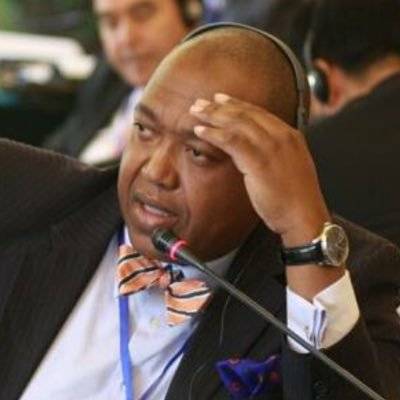The answer to the question posed by this article is simple: Qatar stands to lose in terms of its historical socio-political and economic investments in the Gaza Strip as Egypt, the UAE and, indirectly, Saudi Arabia step into the picture. The perceived future improvements in Gaza as a result of the Palestinian unity negotiations will impact negatively on Qatar’s previous engagement in the territory. Why couldn’t the government in Doha achieve the miracle that the troika has achieved in such a short space of time?
A children’s game played in South Africa involved unscrewing the lid of a bottle. The game was simple: an adult tightened the lid and the children lined up to try to unscrew it. The idea was meant to test the strength of the children; the girls won most contests. The clever ones used to take either a middle or last place in the queue. It was almost certain that the first to try would fail; those further down the queue stood a better chance as the lid loosened gradually with every attempt.
The current political situation in Palestine reminds me of that game. Qatar’s philanthropy in particular, has been alleviating poverty in Gaza for years. The small Gulf state was the first country to send aid and reconstruction assistance following Israel’s brutal 2014 military offensive against Gaza. Two years earlier, the then Emir of Qatar, Sheikh Hamad Bin Khalifa Al-Thani, broke the mould by visiting Gaza carrying with him enormous investment opportunities. During that visit, Qatar donated millions of dollars to rebuild more than 1,000 homes in Khan Younis. Sadly, as new political prospects emerge it looks as if it will not be the Qataris who will take the prize.
Read: The move against Qatar signals a free-for-all on the Palestinian issue
On 2 October, the Prime Minister of the Palestinian Authority, Rami Hamdallah, made a historic visit to Gaza. This was a reconciliatory gesture between Fatah and Hamas as unity negotiations continue between the two major factions. Hamas won the Palestinian elections in 2006, taking 74 of the 132 seats in the Palestinian legislature. Fatah, backed by many Arab states and the West, refused to accept the outcome of the elections. In the face of a boycott, Hamas went on to eject Fatah from the territory and assumed the governance of Gaza. What followed was a blockade led by Israel and Egypt creating unprecedented hardship for the people of the coastal enclave. Egypt, which shares a border with Gaza, has also been unrelenting in closing the Rafah Border Crossing as it pleases. There have also been several military incursions in Gaza and bombardment by Israel, leaving most of the infrastructure crippled. Very few governments around the world — not even the UN — condemned the undemocratic post-election behaviour of Fatah. Instead, it was Hamas that was blamed for the political chaos. It was under such conditions that Gaza became “an open-air prison”.

Palestinian Prime Minister Rami Hamdallah speaks during his meeting with Palestinian groups in Gaza City, Gaza on 4 October 2017 [Ali Jadallah/Anadolu Agency ]
#Hamas
However, it is not all glory days for the Hamas collective, especially in the diaspora. The entrenchment of the UAE, Egypt and Saudi Arabia in the politics of Gaza means difficult times for the movement. These three countries are sworn enemies of the Muslim Brotherhood whose historical connection to Hamas is no secret. Although Hamas disassociated itself from the Brotherhood, its rank and file remains committed to the parent movement’s ideals. What is even more worrying, though, is to what extent the advent of Dahlan is going to polarise Hamas from within itself. How is the shift towards Egypt, the UAE and Saudi Arabia going to impact on the relationship between Hamas and Qatar, which has hitherto been more than cordial?
If these very important questions are left unanswered they may lead to an organisational split. There is simply not going to be a wholesale endorsement of the current political trajectory in Gaza within the rank and file.
The views expressed in this article belong to the author and do not necessarily reflect the editorial policy of Middle East Monitor.

![Palestinians gather to call for a successful Fatah-Hamas reconciliation, on 24 September 2017 in Gaza [Mohammad Asad / Middle East Monitor]](https://i0.wp.com/www.middleeastmonitor.com/wp-content/uploads/2017/09/IMG_6581.jpg?fit=920%2C613&ssl=1)







